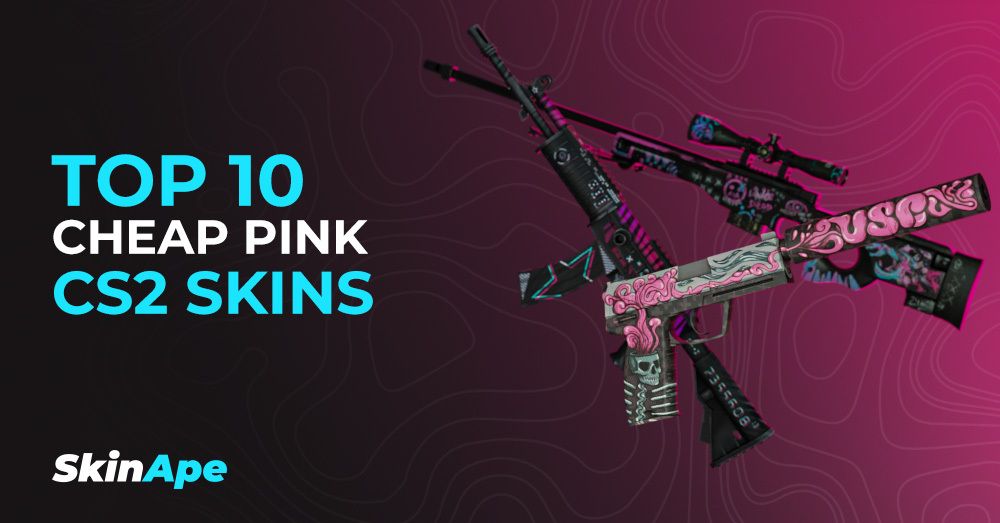Big Boss M5 Insights
Your source for the latest news and tips on technology and innovation.
Why Your CS2 Skins Collection Is the Key to Gaming Street Cred
Unlock the secret to gaming street cred! Discover why your CS2 skins collection is a game-changer for your online reputation.
Elevate Your Gameplay: The Role of CS2 Skins in Building Street Cred
The world of competitive gaming is not just about skill and strategy; it's also significantly influenced by CS2 skins. These digital items serve as a unique form of expression, allowing players to showcase their personal style and differentiate themselves on the battlefield. With a wide variety of designs ranging from the minimalist to the vibrant, CS2 skins can become a crucial part of your gameplay persona, contributing to your overall street cred. By sporting rare and visually appealing skins, players can command respect and admiration from their peers, setting themselves apart in an increasingly competitive community.
Moreover, the role of CS2 skins extends beyond aesthetics; they can also influence how opponents perceive you. When you flaunt an impressive collection of high-value skins, it can intimidate adversaries, giving you a psychological edge. As you climb the ranks in CS2, your choice of skins can signal experience and dedication, elements that are vital in cultivating your reputation within the gaming community. Thus, it’s essential to not only focus on improving your skills but also on strategically curating your CS2 skins to elevate your gameplay and enhance your street credibility.

Counter-Strike is a popular first-person shooter game franchise that emphasizes teamwork and strategy. One of the intriguing weapons in the game is the kukri knife cs2, which offers players unique gameplay mechanics. The series has evolved over the years, becoming a staple in competitive gaming and esports.
The Psychology Behind CS2 Skins: Why They Matter for Gamers
The world of CS2 skins extends beyond mere aesthetics; it taps into the complex psychology of gamers. For many players, these virtual items represent much more than just a weapon upgrade; they symbolize status, individuality, and achievement within the gaming community. The desire to own unique and visually appealing skins drives players to engage in trading, purchasing, and even collecting. This phenomenon can be linked to psychological theories such as Maslow's hierarchy of needs, where self-actualization is achieved through personal expression and social validation. With every unique skin acquired, the player feels a greater sense of identity and belonging, fostering deeper engagement with the game.
Moreover, CS2 skins function as a form of digital currency, influencing gamers' behavior and market dynamics. The thrill of acquiring rare skins often mimics the adrenaline of gambling, leading to risk-taking behavior as players weigh their options for investment in digital assets. As the value of certain skins can fluctuate based on demand and rarity, players are compelled to stay informed about market trends. This creates a cyclical relationship between psychological gratification and financial speculation, ultimately enhancing the gaming experience. Understanding this psychological landscape helps game developers create more engaging content, ensuring that the appeal of skins remains an integral part of the CS2 experience.
Are CS2 Skins the New Status Symbols? Exploring Gaming Culture
In the world of gaming, CS2 skins have emerged as more than just cosmetic upgrades; they represent a new form of currency and status within the community. These digital items not only enhance the aesthetic appeal of weapons but also serve as a tangible symbol of achievement and prestige. As players invest time and resources into acquiring rare skins, it becomes evident that these items are often viewed through the lens of exclusivity and desirability. The connection between ownership of high-value skins and social standing among gamers highlights a fascinating evolution within online gaming culture.
The phenomenon of CS2 skins as status symbols is further fueled by the rise of virtual marketplaces and influencer endorsement. Gamers are increasingly seeking to showcase their unique collections on platforms like Twitch and YouTube, where popularity can lead to even higher valuations of certain skins. This trend has transitioned from a mere hobby into a full-fledged investment strategy for many players, akin to collecting art or rare collectibles. As this culture continues to develop, it raises questions about the influence of digital ownership on self-identity within the gaming community and the broader implications for virtual economies.